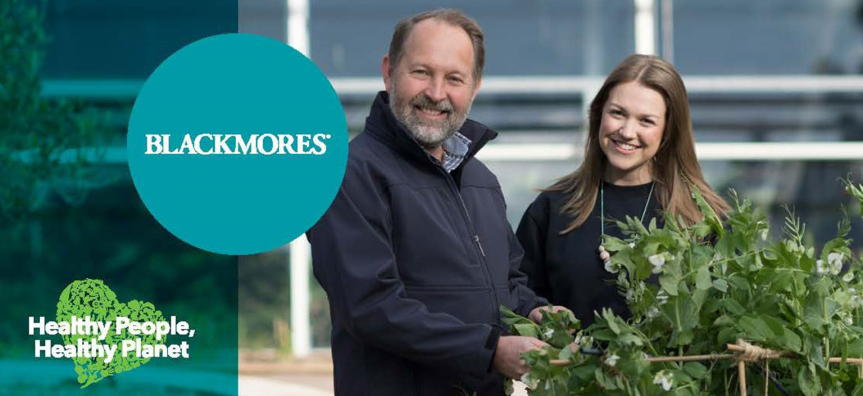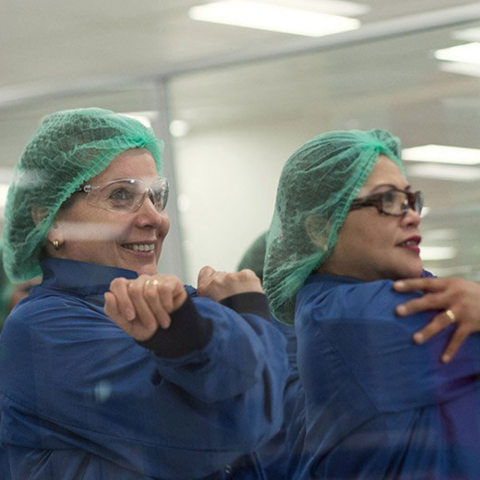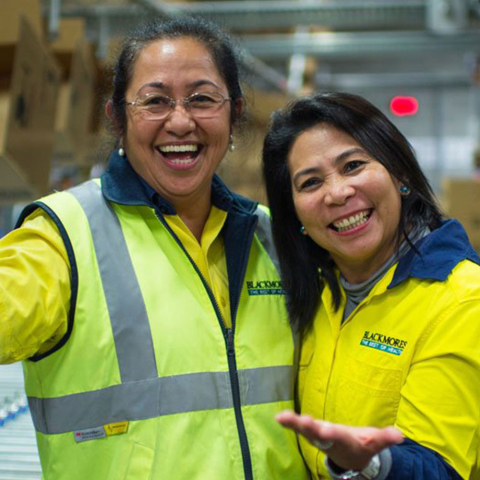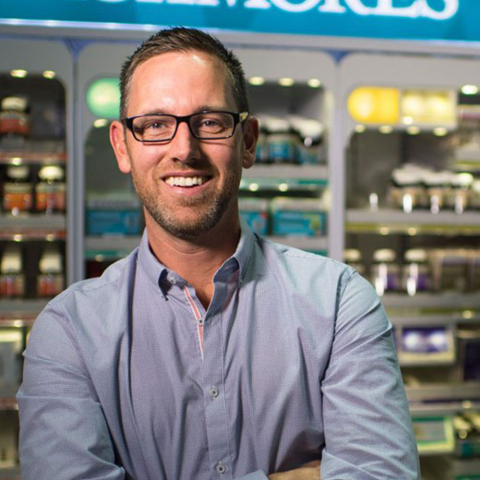

Blackmores is committed to healthy people and a healthy planet.
Through collaboration with suppliers and NGOs, Blackmores aims to reduce the environmental and social impacts of their products both above and below the sea.
Blackmores is an Australian natural health company. Founded in 1932 by Maurice Blackmore, the company combines naturopathic expertise with scientific research producing a range of 1,500 products including vitamins, mineral supplements, and nutritional goods.
Issue
Centred around a belief that “you can’t have healthy people without a healthy planet,” Blackmores have committed to consider environmental and social impacts for every decision-making process.
The Director of Blackmores always says, “the best time to plant a tree was 100 years ago, the second-best time is today.”
Many of Blackmores key ingredients are sourced from the ocean. To ensure sustainability of these ingredients and its products Blackmores have developed the following.
Goals
Four key goals have been developed and integrated into the company:
- Tread lightly,
- Source responsibly,
- Lead the change, and
- Improve wellbeing.
Source responsibly is a movement aimed at reducing supply chain impact and improving the organisations sustainability. This goes hand-in-hand with the 'Social Responsibility Movement' which has led Blackmores to partner with sustainable suppliers to improve performance without compromising product quality, and work towards implementing a circular economy approach.
Actions, outcomes and future plans
Action 1 - Supply chain audit
Blackmores undertook a quality and sustainability audit and an ethical supply chain audit in FY 17 and FY18 to understand how suppliers align with company values.
Through an understanding of the priorities of their suppliers, Blackmores were able to maximise the sustainability of their own products by better understanding their suppliers.
Outcome
Blackmores:
- Incorporated expectations for employees and suppliers to operate in accordance with the Code of Conduct and Supplier Code of Conduct.
- Hold regular meetings with suppliers.
- Host an annual conference.
- Award suppliers who are achieving excellence in sustainability practice at their annual conference.
Action 2 - partnered with World Wildlife Fund
Blackmores formed a partnership with the World Wildlife Fund (WWF) to ensured that all marine oils used in many of Blackmores products are sourced sustainably.
Outcome
This partnership has lead to Blackmores:
- Funding a fisheries improvement program for a Peruvian anchovy fishery.
- Assisting in a program to track blue whales by satellite.
- Participating in the GhostNets project to remove nets which have been lost or discarded in marine environments.
Action 3 - Developed waste reduction initiatives
To maximise the use of the resources and minimise waste, Blackmores developed waste reduction initiatives and partnered with third parties to reduce the impacts of production.
Outcome
This has resulted in Blackmores being recognised as the Australian Packaging Covenant Organisation’s Signatory of the Year through their integration of Sustainable Packaging Guidelines (SPGs) into business practice in 2016. These guidelines have also been incorporated into Blackmores’ Sustainable Packing Guidelines
Action 4 - assessment of product sourcing
Blackmores underwent an assessment of their product sourcing. This included the investigation into alternative paper board for packaging and more ethical and sustainable products.
Outcome
This resulted in changes such as:
- Swapping glucosamine to a vegetarian alternative instead of shellfish.
- Obtaining cod liver oil from a Marine Stewardship Certified source.
- Reduced packaging material by 50 metric tonnes in 2018.
Future plans
Blackmores have been able to significantly reduce their social and environmental impacts by implementing numerous initiatives under their ‘Source Responsibly’ goal.
Through partnerships with suppliers and other organisations, Blackmores will continue to minimise their impact, expand their sustainability initiatives, and work towards reducing all unnecessary waste through additional circular economy projects.



